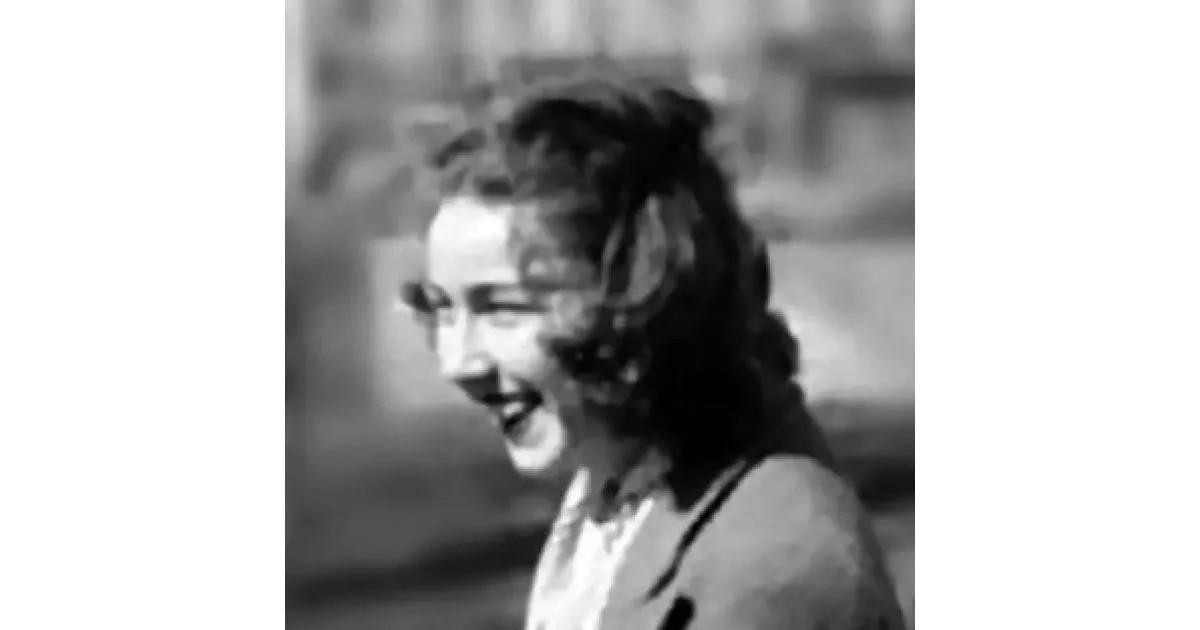"Mary Flannery O'Connor (1925-1964) was an American novelist, short story writer, and essayist. She wrote two novels, 31 short stories, as well as a number of reviews and commentaries. Her writing reflected her Roman Catholic faith and often explored themes of grace, redemption, and the grotesque in the context of the American South."
March 25, 1925: Birth of Flannery O'Connor
On March 25, 1925, Mary Flannery O'Connor, a prominent American novelist, short story writer, and essayist, was born.
1937: Diagnosis of Flannery O'Connor's Father
In 1937, Flannery O'Connor's father received a diagnosis of systemic lupus erythematosus.
1940: O'Connor Family Moves to Milledgeville
In 1940, Flannery O'Connor and her family relocated to Milledgeville, Georgia, where they resided with her mother's family.
February 1, 1941: Death of Flannery O'Connor's Father
On February 1, 1941, Flannery O'Connor's father died due to complications from systemic lupus erythematosus.
1942: Graduation from Peabody High School
Flannery O'Connor graduated from Peabody High School in 1942, where she served as the art editor for the school newspaper.
June 1945: Graduation from Georgia State College for Women
Flannery O'Connor graduated from Georgia State College for Women (now Georgia College & State University) with a B.A. in sociology and English literature in June 1945.
1945: Acceptance into Iowa Writers' Workshop
Flannery O'Connor was accepted into the prestigious Iowa Writers' Workshop at the University of Iowa in 1945, initially pursuing journalism.
1945: Start of O'Connor's Writing Career
Flannery O'Connor's writing career began in 1945, marked by four five-year periods of increasing skill and ambition, culminating in 1964.
1947: Completion of MFA from the University of Iowa
In 1947, Flannery O'Connor received her Master of Fine Arts (MFA) degree from the University of Iowa.
1948: Working on "Wise Blood" at Yaddo
During the summer of 1948, Flannery O'Connor continued working on her novel "Wise Blood" at Yaddo, an artists' community in Saratoga Springs, New York.
1949: Meeting with Robert Fitzgerald
In 1949, Flannery O'Connor met Robert Fitzgerald, a renowned translator of classic literature, and his wife, Sally, in Ridgefield, Connecticut, accepting their invitation for a stay.
1951: Move to Andalusia Farm
In 1951, Flannery O'Connor and her mother moved to Andalusia Farm, which has since become a museum dedicated to O'Connor's literary legacy.
1952: Publication of "Wise Blood"
Flannery O'Connor's debut novel, "Wise Blood," was published in 1952 and was later adapted into a film by John Huston.
1952: Diagnosis of Lupus
In the summer of 1952, Flannery O'Connor was diagnosed with systemic lupus erythematosus, the same autoimmune disease that had affected her father.
1955: Commencement of Correspondence with Betty Hester
Flannery O'Connor began corresponding with Betty Hester, an Atlanta file clerk who expressed admiration for her work, in 1955. This marked the beginning of a significant exchange of letters between the two.
1955: Publication of "A Good Man Is Hard to Find"
Flannery O'Connor published her first collection of short stories, "A Good Man Is Hard to Find", in 1955.
1956: Start of Book Reviews for Catholic Newspapers
From 1956 onwards, Flannery O'Connor, a devout Catholic, began writing book reviews for two Catholic diocesan newspapers in Georgia: "The Bulletin" and "The Southern Cross." This marked the beginning of her contributions to religious publications.
1960: Publication of "The Violent Bear It Away"
In 1960, Flannery O'Connor published her second novel, "The Violent Bear It Away."
1960: Flannery O'Connor's Political Stance
In 1960, Flannery O'Connor, maintaining a broadly progressive outlook rooted in her faith, voted for John F. Kennedy and expressed support for Martin Luther King Jr. and the civil rights movement.
August 3, 1964: Death of Flannery O'Connor
On August 3, 1964, Flannery O'Connor, known for her impactful literary works, passed away.
1964: End of Book Reviews for Catholic Newspapers
Flannery O'Connor continued her work as a book reviewer for Catholic newspapers until 1964, showcasing her engagement with theological and ethical themes in literature.
1964: End of O'Connor's Writing Career
Flannery O'Connor's writing career, characterized by four distinct periods of growth, concluded in 1964.
1965: Posthumous Publication of "Everything That Rises Must Converge"
In 1965, Flannery O'Connor's second collection of short stories, "Everything That Rises Must Converge," was published posthumously.
1972: National Book Award for "Complete Stories"
Flannery O'Connor's "Complete Stories" was posthumously awarded the U.S. National Book Award for Fiction in 1972, solidifying her place as a literary giant.
1983: Establishment of the Flannery O'Connor Award for Short Fiction
The Flannery O'Connor Award for Short Fiction, named in honor of the renowned author, was established by the University of Georgia Press in 1983. The award is presented annually to recognize an outstanding collection of short stories, celebrating excellence in the genre that O'Connor mastered.
1987: Donation of Letters to Emory University
The letters between Flannery O'Connor and Betty Hester were donated to Emory University in 1987 under the condition that they would remain private for a period of 20 years before being made public.
1989: Release of "Lupus" by Killdozer
The noise rock band Killdozer released their song "Lupus" in 1989, featured on their album "12 Point Buck." The song draws inspiration from the disease that ultimately claimed Flannery O'Connor's life, mentioning her name multiple times throughout the lyrics.
May 2007: Unveiling of Letters Between O'Connor and Hester
In May 2007, Emory University unveiled the complete collection of unedited letters exchanged between Flannery O'Connor and Betty Hester, providing deeper insights into their relationship and O'Connor's thoughts.
2009: "Complete Stories" Voted Best National Book Award Winner
In 2009, an online poll recognized Flannery O'Connor's "Complete Stories" as the best book ever to receive the National Book Awards, further cementing its legacy.
2013: Publication of O'Connor's Prayer Journal
In 2013, a prayer journal kept by Flannery O'Connor during her time at the University of Iowa was published, offering a glimpse into her personal reflections on faith, writing, and her relationship with God.
June 2015: USPS Honors O'Connor with Postage Stamp
In June 2015, the United States Postal Service issued a new postage stamp honoring Flannery O'Connor, marking the 30th stamp in the Literary Arts series. However, the stamp faced criticism for its perceived failure to accurately represent O'Connor's character and literary impact.
2016: Induction into Savannah Women of Vision
Flannery O'Connor was posthumously inducted into the Savannah Women of Vision in 2016, recognizing her contributions to literature and her impact as a Southern writer.
2020: Loyola University Maryland renames Flannery O'Connor Hall
In 2020, Loyola University Maryland renamed Flannery O'Connor Hall in honor of activist Sister Thea Bowman due to the recognition of racism present in some of O'Connor's work.
2023: Release of "Wildcat," a biographical film about Flannery O'Connor
The biographical film "Wildcat," co-written and directed by Ethan Hawke and starring his daughter as Flannery O'Connor, was released in 2023. The film portrays O'Connor's journey to publish her novel "Wise Blood" and incorporates scenes from her short fiction.
2024: Publication of Flannery O'Connor's unfinished novel, "Why Do the Heathen Rage?"
In 2024, Brazos Press published Flannery O'Connor's unfinished novel, "Why Do the Heathen Rage?" The book was assembled by Jessica Hooten Wilson from O'Connor's drafts and includes Wilson's critical commentary.
Mentioned in this timeline

Martin Luther King Jr was a pivotal leader in the...

John F Kennedy JFK was the th U S President...
Connecticut is a state in the New England region of...

Martin Luther a German priest theologian and author was a...

Books are a means of storing information as text or...
Iowa is a state in the U S Midwest bordered...
Trending

27 minutes ago LeAnn Rimes Revisits 'Coyote Ugly' Bar, Recreates Iconic Scene After 26 Years

1 hour ago Max Scherzer Returns to Blue Jays for His 19th MLB Season
1 hour ago Vacherot at Acapulco ATP, predictions, betting odds and previews for the tournament.

2 hours ago Tiafoe Set to Clash with Borges and Kovacevic at Mexico Open.
1 hour ago Cameron Johnson and Drew Burress Shine as College Baseball Data Standouts

1 hour ago Jason Bateman and Amanda Anka's Marriage: Sobriety, Red Carpets, and Vulnerable Confessions
Popular

Jesse Jackson is an American civil rights activist politician and...

Susan Rice is an American diplomat and public official prominent...

Barack Obama the th U S President - was the...

XXXTentacion born Jahseh Dwayne Ricardo Onfroy was a controversial yet...

Michael Joseph Jackson the King of Pop was a highly...

Michael Jordan widely considered one of basketball's greatest players significantly...
